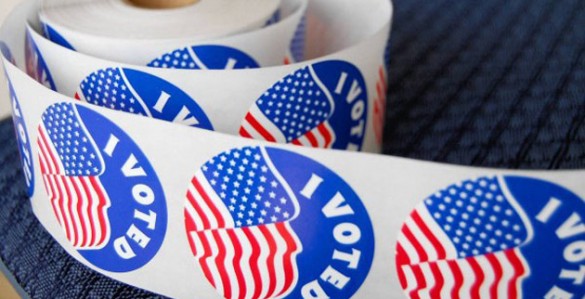
In a deeply divided 5-4 decision, the Supreme Court struck down what was considered the government’s strongest legal tool to stop voting discrimination, section 4 of the Voting Rights Act of 1965.
The Court declared unconstitutional a map within the Voting Rights Act that determines which states and localities must get Washington’s approval for proposed election changes. The Court claimed it does not reflect progress in racial issues since the map was created in the 1960’s.
The Court said that the opinion “in no way affects the permanent, nationwide ban on racial discrimination in voting found in section 2. We issue no holding on [Section] 5 itself, only on the coverage formula. Congress may draft another formula based on current conditions.”
One of the nation’s top scholars on constitutional law, Vanderbilt law school professor Suzanna Sherry, Herman O. Loewenstein Professor of Law and Harvie Branscomb Distinguished University Professor, wrote an opinion piece for The Washington Post website right after the decision came down.
If the Voting Rights Act is changed, don’t blame the Supreme Court, blame Congress
By Suzanna Sherry
The landmark Voting Rights Act has three separate sections that are relevant to today’s decision in Shelby v. Holder. Section 2 prohibits discrimination in voting. Section 5 requires “covered” jurisdictions to obtain pre-clearance from the Attorney General or a federal court before making any change, however small, to their electoral systems. And section 4 sets out the formula that determines which jurisdictions are covered by section 5 and thus have to get preclearance.

Early commentary on Shelby v. Holder accurately reports that it struck down only the coverage formula of section 4, not the preclearance requirement of section 5. (Section 2 was not challenged.) Most commentators also suggest that today’s decision is the death knell for section 5. As Justice Ginsburg writes in dissent, “without the formula, section 5 is immobilized.”
That may well be true, but we should not blame the Supreme Court – if section 5 becomes a nullity, it is Congress’s fault.
In 2005, when Congress renewed the Voting Rights Act for 25 years, it continued to use the same coverage formula that it had enacted in 1982, which itself was based on electoral data from the late 1960s and early 1970s. But as the Court notes in Shelby, “history did not end in 1965.” The jurisdictions that were covered in the 1970s – justifiably, based on their then-recent history – have made great strides since then. Indeed, African-American voter registration and turnout is now greater in most of the covered states than in many of the uncovered states.
A rational, functional Congress would have taken that history into account. A rational, functional Congress would have amended the formula so that it targeted the states with the most evidence of voter discrimination, not those with the least. Congress had the 2004 electoral data when it acted in 2005, and it knew that the states covered by the 1982 formula had better records than uncovered states. But it chose not to amend the formula, and now the beneficiaries of the Voting Rights Act will pay the price.
Even now, Congress can act to reinvigorate § 4 and save § 5 by adopting a new coverage formula. But just as in 2005, doing so would take courage and thoughtfulness that seems to be lacking. Cowardice and political polarization are likely to keep Congress from acting, because it would require answering hard questions: How should we decide which states are engaging in discrimination? Whose constituents are going to be saddled with additional burdens every time there is a proposed electoral change?
Making those difficult decisions is Congress’s job, not the Court’s. The Court has merely insisted that Congress’s decision be based on current conditions rather than on outdated ones. We should not blame the Court when Congress fails.
Sherry’s op-ed was posted at The Washington Post on Tues., June 25.